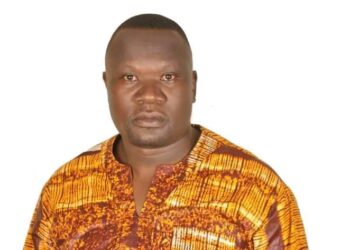So far, in the roll out of the Covid 19 vaccinations, there has been more interest from expatriates than from Ugandans. Proportionate to their numbers, more whites and Indians are showing up to get vaccinated than Ugandans. So what does it mean if many Ugandans don’t get the Covid vaccination?
Unfortunately some Ugandans seem to have been influenced negatively by reports regarding the side effects of vaccination, while others don’t see why they need to get vaccinated because they are young, and Covid usually causes only mild symptoms in young people. Also there are reports from South Africa that many of the vaccines do not work against the new South African variant. These are legitimate concerns, and we have to admit that this is an unfolding epidemic and our understanding of the behaviour of the virus is still developing. We cannot claim to have a full understanding of how this virus works, nor do we know any possible long-term side effects of the vaccine since it has only been available for a few months. All of this contributes to vaccine hesitancy.
Despite understanding these issues I chose to be vaccinated with the AstraZeneca vaccine, even before the European Medicines Agency gave it the green light regarding rare thromboembolic events. The reason I ignored the chances of a blood clot was because the odds are minuscule compared to the chances of dying if I were to contract serious Covid disease. I was also aware of a recent study published on the effectiveness of the AstraZeneca vaccine against the South African strain which showed it gave only 29% protection, but I was not too bothered by this study because I understood what is being measured. Researchers normally compare whether a vaccine can prevent Covid completely, whether there is mild disease, or there is severe disease and death. Therefore when we hear that a vaccine is only 29% effective, the outcome they are reporting is usually absolute prevention. In the study on the South African strain some people developed mild disease, but there were no reported deaths. So if I am vaccinated I may get mild disease from the South African variant but I will not die.
Covid has shown many of the characteristics of the influenza virus, in that it is more severe in cold climates (and in wet seasons) and is more life threatening for older people. Kenya is now experiencing its third wave of Covid, with exceptionally high rates of infection in Nairobi. We have been spared an upsurge over the past few months, but we will likely experience another increase in April due to the wet season. In the northern hemisphere there is a recognized ‘flue season’ which occurs every winter, and because influenza is more serious in older people a flue jab has been developed which is given to the older more vulnerable population every winter. The reason that we need to vaccinate 60 to 70% of the population is to develop herd immunity and prevent Covid taking hold like the influenza virus. If we fail in this, then Covid will continue to mutate and we will need to develop new vaccinations every year.
Therefore. there are two reasons to be vaccinated against Covid. The first is to protect oneself, especially if there are co-morbidities or one is older, and the second is to develop herd immunity, which will protect the whole community. Many Ugandans do not see why they need to protect themselves, but if enough people do not take the vaccine we will not reach herd immunity.
If Africans do not take up the vaccine en mass, then Covid is likely to become endemic in Africa, with many African variants developing – Africa will then become the ‘Home of Covid’ which is the last thing we need. So if we are to defeat Covid we should all be lining up for our vaccine, young and old, black and white. We need to understand that vaccination is for the good of us all.
Do you have a story in your community or an opinion to share with us: Email us at editorial@watchdoguganda.com













